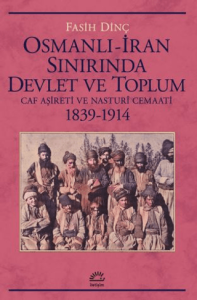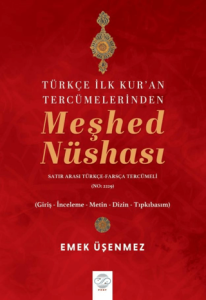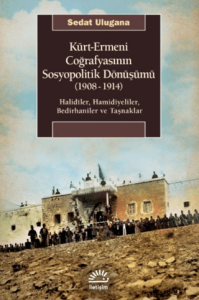
This is the life of a determined man whose name should be included in any list of outstanding individuals of the nineteenth century. Cyrus Hamlin was much more than a dedicated missionary. He was a revolutionary educationalist who wanted learning to be a balance between the skills of the hand and the skills of the mind...
No detail escaped this self-taught engineer who trained his students to bake bread which delighted the wounded from the Crimean War and who also invented primitive washing machines to deal with their blood and filth sodden uniforms unchanged since the battlefield. Deservedly, it was the whiff of newly baked bread that led Christopher Robert to land perchance at Bebek and so to meet Hamlin. From this encounter came the money with which to found Robert College which is now the University of the Bosphorus.
Hamlin had to fight the Ottoman government and the Mission Board in order to achieve his college only to hand it over to his son-in-law: but he was to become President of other foundations yet. He lost two loved wives but wisely married a third and continued to have children; and if he lost his favourite young he had reason to be proud of his many surviving progeny. There was no shortage of misfortunes for him to rise above, perhaps because he was quick to take advantage of his chances. He was a man of absolute rectitude, a natural disciplinarian who was able to thwart brigandly Montenegrin labourers bent on murder and, far more dangerous, the self-righteousness of a bigoted professor. But he was also a sharp-witted and a sharp tongued no-nonsense fellow who got on well with the British Embassy and residents, whose sons were among the earliest enrolled at his college. It was natural that his fellow missionaries should find him difficult because he did not behave according to the rules, least of all when he made his original foundation by the sea at Bebek prosperous by commercial enterprise and so able to support its penniless students, many from the Anatolian hinterland...
One of the delights of this book is its revelation of the fun that he had with his children, romping around on all fours between the hundred jobs he succeeded in doing each day."
-Godfrey Goodwin-
This is the life of a determined man whose name should be included in any list of outstanding individuals of the nineteenth century. Cyrus Hamlin was much more than a dedicated missionary. He was a revolutionary educationalist who wanted learning to be a balance between the skills of the hand and the skills of the mind...
No detail escaped this self-taught engineer who trained his students to bake bread which delighted the wounded from the Crimean War and who also invented primitive washing machines to deal with their blood and filth sodden uniforms unchanged since the battlefield. Deservedly, it was the whiff of newly baked bread that led Christopher Robert to land perchance at Bebek and so to meet Hamlin. From this encounter came the money with which to found Robert College which is now the University of the Bosphorus.
Hamlin had to fight the Ottoman government and the Mission Board in order to achieve his college only to hand it over to his son-in-law: but he was to become President of other foundations yet. He lost two loved wives but wisely married a third and continued to have children; and if he lost his favourite young he had reason to be proud of his many surviving progeny. There was no shortage of misfortunes for him to rise above, perhaps because he was quick to take advantage of his chances. He was a man of absolute rectitude, a natural disciplinarian who was able to thwart brigandly Montenegrin labourers bent on murder and, far more dangerous, the self-righteousness of a bigoted professor. But he was also a sharp-witted and a sharp tongued no-nonsense fellow who got on well with the British Embassy and residents, whose sons were among the earliest enrolled at his college. It was natural that his fellow missionaries should find him difficult because he did not behave according to the rules, least of all when he made his original foundation by the sea at Bebek prosperous by commercial enterprise and so able to support its penniless students, many from the Anatolian hinterland...
One of the delights of this book is its revelation of the fun that he had with his children, romping around on all fours between the hundred jobs he succeeded in doing each day."
-Godfrey Goodwin-




















